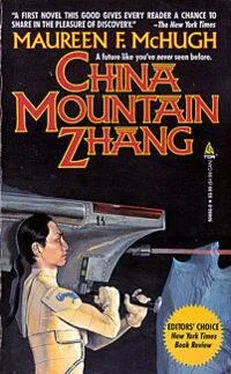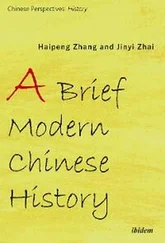"Went back to a soft currency system," someone volunteers.
"What is soft currency?" I ask.
Silence.
The boy who called me laoshi has his nerve back. "Ah, it is an economic system which does not tie it's own currency into the world market."
"Meaning?" I ask.
"Meaning," he takes a breath, "that a Chinese yuan inside the borders of China had value-that it bought things-but that outside the Chinese border it was just a piece of paper."
"Ah," I say. Then I tell the truth. "You're the first person ever to explain that to me. Unless I slept through it in Middle School, which is possible." Honest laughter this time.
I continue. "The U.S. could no longer provide social services, keep schools open, hospitals, banks. Eventually, the Communist Party organized well enough under Christopher Brin to take over portions of New York City and attempted to provide basic social services. We will skip over the struggles of the early party, which was, as everyone knows, given a major shot in the arm by the help of the Chinese who had managed to get their economic shit together."
Grins in the room.
"Along comes the Second Civil War, led by Brin until he was killed in Atlanta and after that by Darwin Iacomo and Zhou Xie-zhi and the United States becomes a socialist country. So there we have it, Capitalism to Proletariat revolution to Socialism. Now," I ask, "where is the American Feudal period?"
Actually, it was a Canadian who first asked me that, Karin, happily poking holes in my education. The class has the same answer I do, which is to say that they have no idea.
"Well," I say, enjoying myself immensely and not giving Karin any credit, "unless you count slavery, which was regional, there was no feudal period. And the only American primitive period was the Native Americans, and their economic history is discontinuous from ours."
A young woman who hasn't spoken thus far raises her hand. "Our feudalism was in Europe," she says.
I nod. "Okay," I say, "I'll give you that."
Up until now everything I've said has been fine. I stop. I don't really have the nerve to go on. I look up, there are students in every seat, and there are two people leaning on windowsills. They are all waiting, waiting for me to make my point. "But now, all of this so far has been very fine from a political point of view. But from a scientific point of view it is clearly a very Newtonian way of thinking."
They all watch me. I don't know what they are thinking.
"Newtonian," I say, "From Newton. The guy with the apple." Marx and Mao Zedong, I am the last person anyone would ever expect to be standing here lecturing on science and politics. Maybe I can just explain why it's Newtonian and stop there, that doesn't seem too dangerous.
"Newton thought of the Universe as like a giant clock. He said that the universe was rather like a mechanism, wound up and set in motion by God and therefore moving in grand patterns, much like planetary orbits. The nineteenth and twentieth century were mostly involved with trying to figure out Newton's patterns and describe them all.
"Marx attempted to reduce society to it's component forces. For Newton, the forces that described the universe were basically gravity, motion and inertia. Marx's major forces were economic. He thought that an analysis of economic relationships would explain the movement of history. And when he had analyzed these relationships he could extrapolate to predict the way society would move in the future." I tap on the board. "This is his analysis."
Some nods. I notice the flicker of highlighters. "I would appreciate it you didn't take this down," I say softly. "You will not be tested on any of this."
The young man who calls me laoshi grins and leans back.
"Marx assumed that either things were predictable or they were random. Things are either predictable or random, aren't they?" It is a trick question, these are engineering students. Engineering tends to work with things we can solve. Things we can solve are usually predictable. "What are the two kinds of predictable equations?" After I ask it I realize they may not know.
A young man, "Linear or periodic."
"Right. Linear. If I drop this book you can calculate the speed of the book as it falls. Correct? Linear or periodic?"
"Linear," he says.
I tap the blackboard behind me. "Linear or periodic?"
"It's not an equation," says the woman who said our Feudal period was in Europe.
"Ah, but it looks like a graph, would the equation be linear or periodic?"
"Linear," a couple of people say. Obviously. It's a line, from primitive to the communist utopia.
"Give me an example of periodic?"
The laoshi young man. "The seasons."
"Right, spring, summer, fall, winter, spring, summer, fall, winter. Capitalism assumed that an economy cycles in a boom and bust cycle. Expansion, adjustment, expansion, adjustment. After all, economics is not unpredictable, is it? The law of supply and demand holds true, reduce the supply and demand will force prices higher. A system that's predictable isn't random.
"So which was right, Marx with his linear view of history, or capitalism with it's cyclical view? Obviously not capitalism, because history didn't repeat. We did progress from primitive society to feudalism, to capitalism. Unless the cycle is just longer than we realize and we are all going to drop back to primitive and start the climb all over again."
"But a periodic equation is a loop," the feudalism woman says, "it has to repeat exactly."
"We're using mathamatics as metaphors," I explain. "Science filters into the general public as metaphors that describe out world, our history. For Marx, there were only two possibilities, that history was either predictable or it was random. If it was random, then it should have behaved in a random fashion, but Newton had described the universe as governed by natural laws. Marx's genius was in determining that social history was also governed by recognizable factors. He set out to systematically define those factors-the basic ones economic-and then, once he thought he had, he did for society what Newton's system did for planetary motion, he predicted the future."
I should stop. But it would sound ridiculous if I stopped. And there's something exciting about standing up here, thinking all this, saying all this.
"That is what you have been taught, and that's the prevailing social view. It's basically a Newtonian view. Since Newton we've had a number of major revolutions in the way we think the universe works, three of them in the twentieth century. The first was Relativity, the second was Quantum Mechanics, the third was Chaos. What is chaos?"
Laoshi says, "The study of complex, non-linear systems."
"Good. What's the Butterfly effect?"
" Laoshi , Pardon me?"
"Any of you interested in Physics?" I ask. "Can someone describe 'sensitive dependence on initial conditions'?"
The young woman who said American feudalism occurred in Europe says, "Sensitive dependence on initial conditions' refers to the way small factors affect non-linear systems." The definition is textbook, the voice is Brooklyn. She and the ABC, I like them.
"Right," I say, "The most classic example is weather, which is not random-for example thunderstorms occur at the leading edge of low pressure system. But weather is not cyclic, if it rained on August the ninth last year that doesn't tell you what it will do this year. The mean average temperature for this year is not the mean average temperature for last year, nor this century for last century. In fact, the climate of the earth has changed radically, through ice ages and warm periods, and no one has ever been able to identify a pattern that repeats itself.
"If I am trying to predict weather, I can feed huge quantities of information into a system; temperature and wind direction and humidity for places all over the globe, the effect of the earth's rotation, land masses, mountain elevations, oceans, and get a fairly reasonable representation of weather. But if I change one temperature in one location by one-tenth of a degree, pretty soon my model's weather will start to diverge from actual weather conditions. In a few months, the system and the real world won't resemble each other at all. Weather shows sensitive dependence on initial conditions. It is so sensitive to variables that the movement of air by a butterfly's wings in New York eventually has an effect on dust storms in Beijing.
Читать дальше












